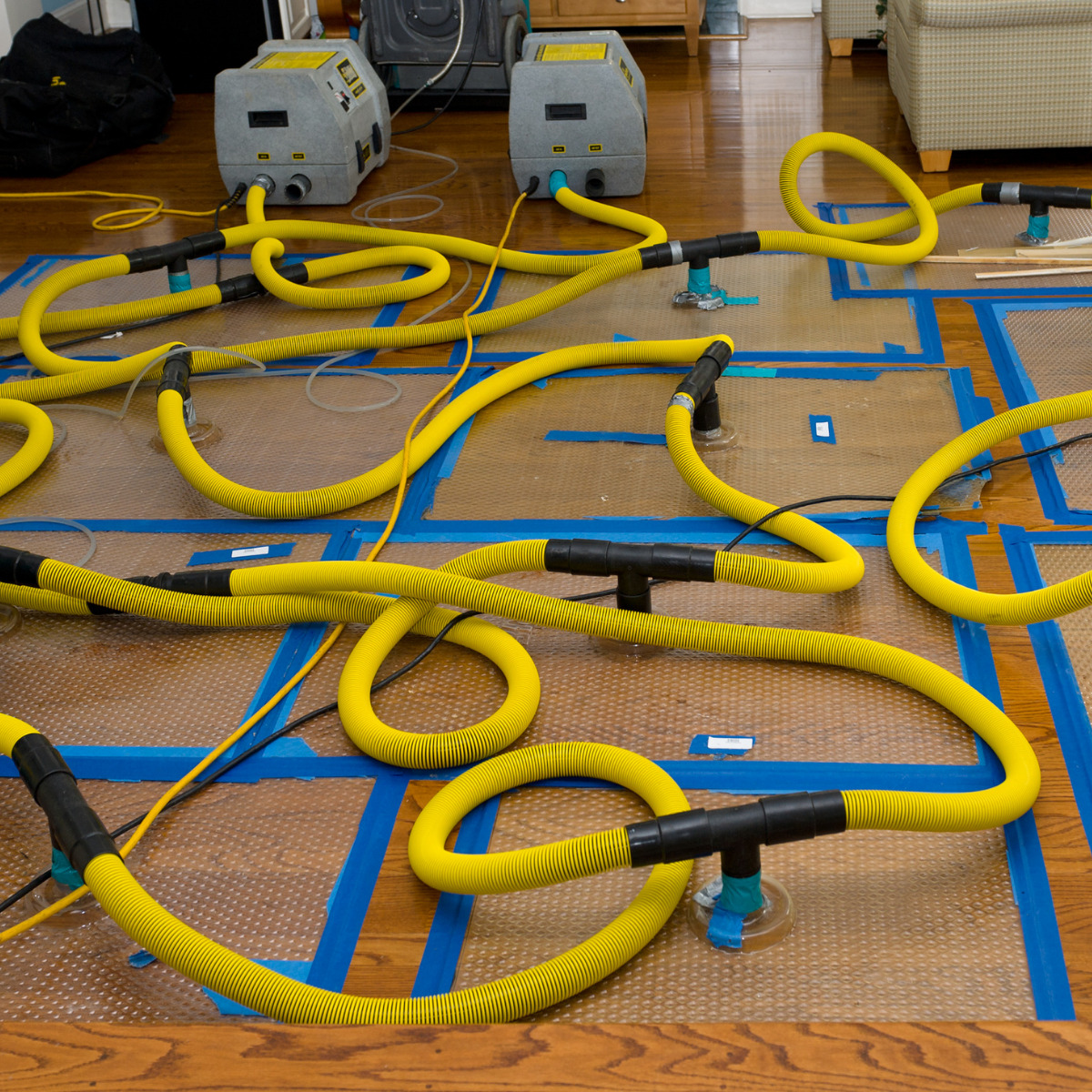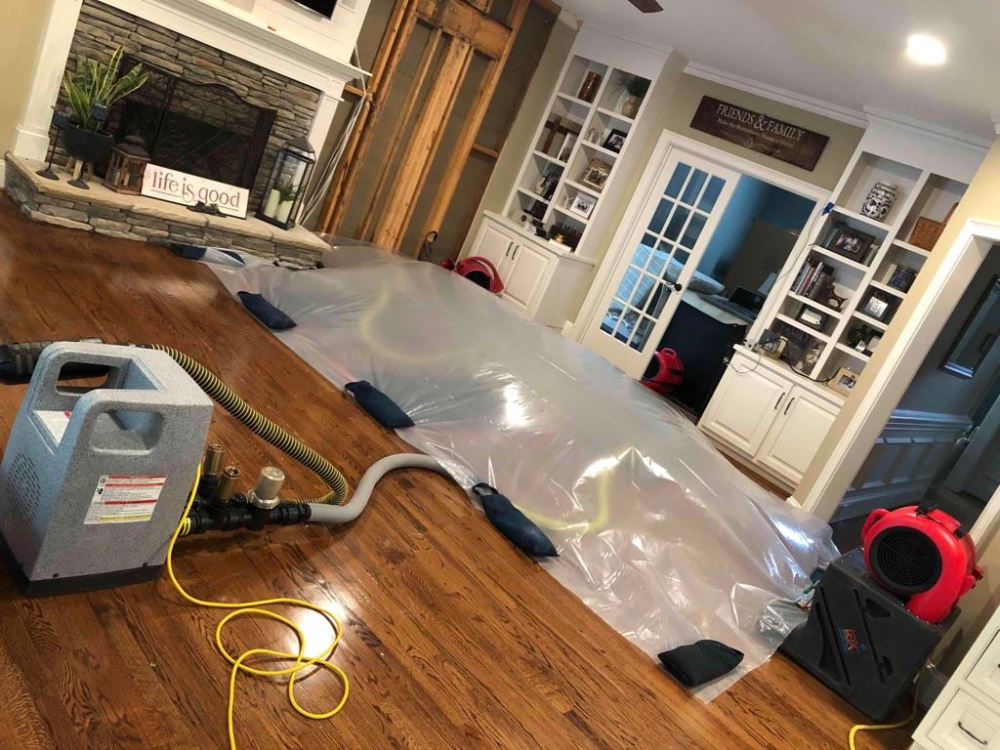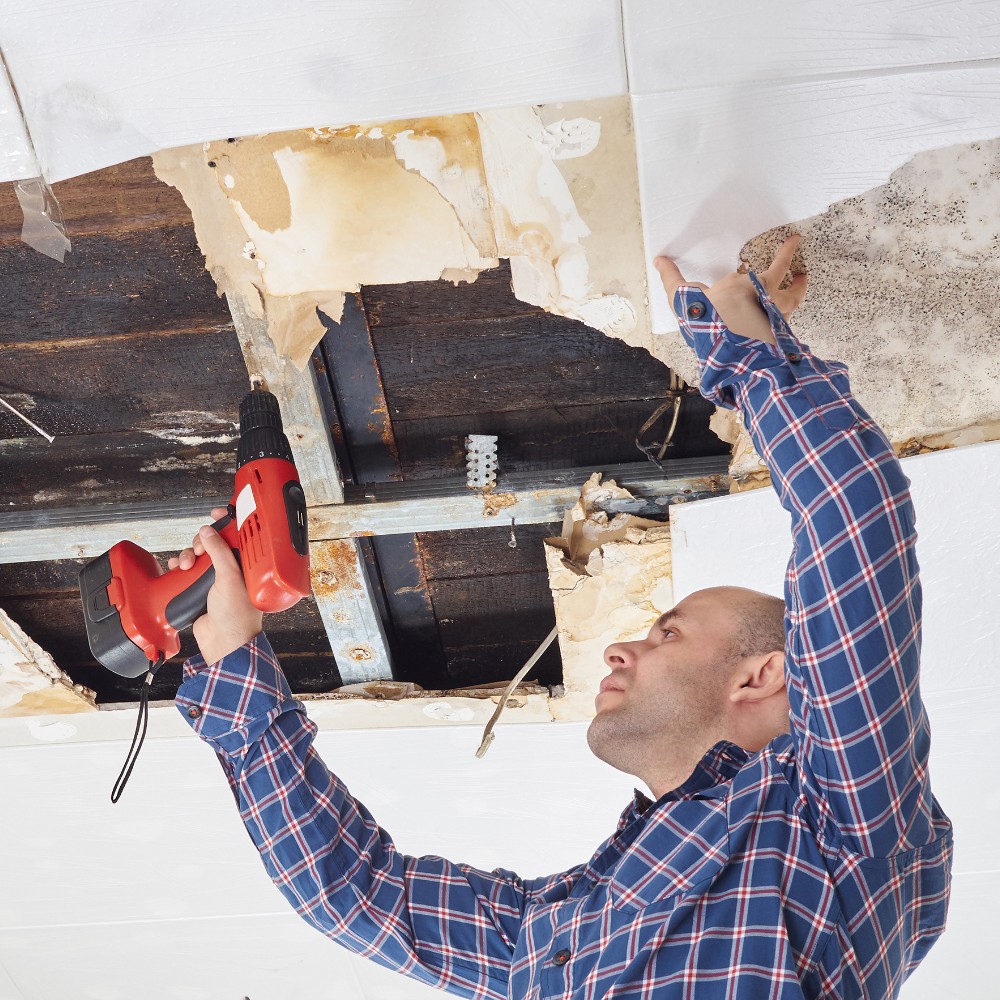Vital Steps to Comply With for Reliable Water Damage Repair in your house
When faced with water damages in your home, understanding the vital steps for effective remediation can make all the distinction. You require to assess the damages and assurance safety prior to dealing with the trouble. Stopping the source of water is important, but it's just the beginning. As soon as you have actually taken care of that, there's a collection of actions you need to require to secure your residential or commercial property from more problems. Let's explore what you need to do following.
Evaluate the Damage
The initial action is to evaluate the damages extensively when you find water damage in your home. Begin by recognizing the resource of the water intrusion. Look for leakages, ruptured pipes, or other concerns triggering the problem. Next, examine the affected areas for noticeable signs of damage, including mold and mildew, discoloration, or bending growth. Do not fail to remember to look in concealed spots like behind wall surfaces or under flooring, as water can leak right into these locations unnoticed.Document the damage by taking clear photos and notes. This will aid you when discussing the situation with your insurance coverage provider or restoration professionals. Focus on the sort of materials affected, as various products require various remediation techniques. Examine the level of the damage. Is it minor or comprehensive? Understanding the range will direct you in choosing whether to handle it yourself or employ the experts for a much more substantial reconstruction process.

Guarantee Safety
Prior to you start any repair job, guaranteeing your safety is vital. Analyze the condition of your home. If the water's deep or if you discover electric risks, don't get in the area. Transform off the electricity and gas supply to protect against mishaps. Wear safety equipment like boots, masks, and gloves to protect yourself from impurities or mold.It's essential to remain knowledgeable about your surroundings; expect unsafe surface areas and sharp objects. Treat it as harmful waste if the water is from a sewage back-up. Keep youngsters and animals far from impacted areas to prevent exposure.Once you've taken these preventative measures, you can wage the reconstruction process. Remember, your safety comes first, and if you're ever not sure, it's finest to consult an expert. Taking these actions will assist assure you prepare to take on the repair safely and successfully.
Stop the Resource of Water
After ensuring your security, the next step is to stop the resource of water. Identify where the leakage is originating from. It could be a burst pipe, a malfunctioning home appliance, or perhaps hefty rainwater going into via a damaged roof. Transform off the major water supply to your home to avoid further flooding if it's a plumbing problem. For appliances, unplug them and shut down their supply of water valves.If the resource is outside, like rainwater, attempt to divert it far from your home using sandbags or other obstacles. For minor leakages, you may be able to utilize tape or a sealer momentarily till an expert can fix it. Remember, dealing with the resource quickly is vital to decreasing damage and protecting against mold growth. Once you have actually stopped the water, you'll be in a much better placement to move on to the following action in the remediation process.

Remove Excess Water
Act quickly to get rid of excess water, as standing water can lead to a lot more substantial damage and mold growth. Initially, collect your devices: a wet/dry vacuum, buckets, and towels. If the water is superficial, you can use towels to absorb the dampness. For much deeper water, a wet/dry vacuum is your best option. Make certain to clear the vacuum cleaner often to avoid overflow.If the water is polluted, like from a sewer backup, wear protective gear, consisting of gloves and masks, to keep on your own secure. Once you've removed as much water as possible, look for surprise pockets of moisture in edges and under furniture, as these can harbor mold.Don' t forget to shut off electric devices and power electrical outlets in damp areas to avoid threats. This initial step is important in lessening damages and setting the phase for an effective remediation process.
Dry and Dehumidify the Area
It's essential to completely dry and dehumidify the location completely once you have actually gotten rid of the excess water. Start by utilizing dehumidifiers effectively to pull moisture out of the air and avoid mold growth. Keep an eye on moisture levels to guarantee the space dries out entirely.
Eliminate Standing Water
To effectively take on water damage, you need to focus on eliminating standing water as swiftly as possible. Beginning by gathering essential devices, like a wet/dry vacuum or a pump, relying on the quantity of water. If the water is superficial, a vacuum cleaner should suffice. For larger quantities, a pump is more effective. While functioning, ensure to put on safety equipment to maintain yourself risk-free from contaminants. As you eliminate the water, focus on hidden areas like under furnishings or in edges where water could collect. When you've removed the majority, your space will certainly begin to dry. This step is essential, as lingering water can bring about mold and mildew development and extra considerable damage.
Usage Dehumidifiers Efficiently
Just how can you efficiently utilize dehumidifiers to dry and evaporate your area? Beginning by putting your dehumidifier in the most damaged area, preferably where water damages get more info is most extreme. Make sure to close all doors and windows to create a sealed environment. Switch on the dehumidifier and established it to the proper humidity level, normally around 30-50%. Empty the water collection storage tank often, or take into consideration utilizing a model with a continual drain option for convenience. Preferably, use followers to enhance air movement, assisting the dehumidifier work extra successfully. Maintain the dehumidifier running till you're certain that the area is completely dried out, avoiding mold and mildew growth and additional damage (Water Damage Cleanup). This action is important for reliable water damage repair
Screen Moisture Degrees
Surveillance moisture levels is essential throughout the drying out procedure, as it assists guarantee your area remains complimentary from excess wetness. Spend in a trustworthy hygrometer to track moisture properly. Preferably, you want to preserve levels in between 30% and 50%. If moisture analyses climb over this range, you might require to change your fans or dehumidifiers to boost airflow. Inspect the readings on a regular basis, especially in areas vulnerable to dampness, like basements or restrooms. Consider raising ventilation or making use of added dehumidifiers if you see relentless high moisture. Remaining on top of these degrees not just accelerates the drying process yet additionally protects against mold development, guaranteeing your home stays comfy and risk-free.
Clean and Disinfect Affected Surfaces

Bring back and Fix Your Home
After cleansing and decontaminating the affected areas, it's time to bring back and fix your home. Begin by reviewing the damages. Look for structural issues, like compromised floors or wall surfaces, and resolve any required fixings. Replacing harmed drywall or flooring is vital for both appearances and safety.If your furnishings or belongings were affected, think about whether they can be recovered or require substitute. Tidy or expertly restore products where possible.Next, touch and paint wall surfaces up any kind of locations that require interest. This not only improves look however additionally secures surfaces from future water damage.Don' t forget to check your pipes and home appliances for leaks, ensuring every little thing's working properly. Take into consideration installing a dehumidifier to avoid future moisture concerns. By taking these steps, you'll recover your home to its previous glory and develop a more secure living environment.
Frequently Asked Inquiries
Exactly How Lengthy Does Water Damage Reconstruction Normally Take?
Water damages repair commonly takes anywhere from a couple of days to several weeks, depending on the degree of the damages (Water Damage Cleanup). You'll intend to evaluate the situation promptly to decrease further issues and assure proper remediation
Will My Insurance Cover Water Damages Remediation Costs?
Your insurance may cover water damage reconstruction prices, however it depends upon your policy. Examine your coverage details and call your insurance agent to clarify what's consisted of and what you require to file an insurance claim.
Can I Take Care Of Water Damages Reconstruction Myself?
You can deal with water damages remediation on your own, however it's vital to evaluate the situation. If it's extensive, you might wish to call specialists. Always focus on security and assure you have actually obtained the right devices.
What Are the Signs of Hidden Water Damage?
You could see indications of concealed water damage like deformed wall surfaces, stuffy smells, or discoloration. If your floorings really feel squishy or you spot mold and mildew, it's time to explore better prior to the circumstance gets worse.
Just How Can I Prevent Future Water Damages in My Home?
To stop future water damage in your house, you need to on a regular basis evaluate pipes, seal cracks, keep rain gutters, and warranty proper drainage. Installing a sump pump and dampness obstacles can likewise help maintain your area dry. When you discover water damages in your home, the very first action is to assess the damage completely. Act quickly to remove excess water, as standing water can lead to extra considerable damage and mold development. To effectively take on water damages, you require to concentrate on getting rid of standing water as rapidly as possible. As you get rid of the water, pay attention to hidden locations like under furnishings or in edges where water could collect. Water damage remediation generally takes anywhere from a few days to numerous weeks, depending on the extent of the damage.